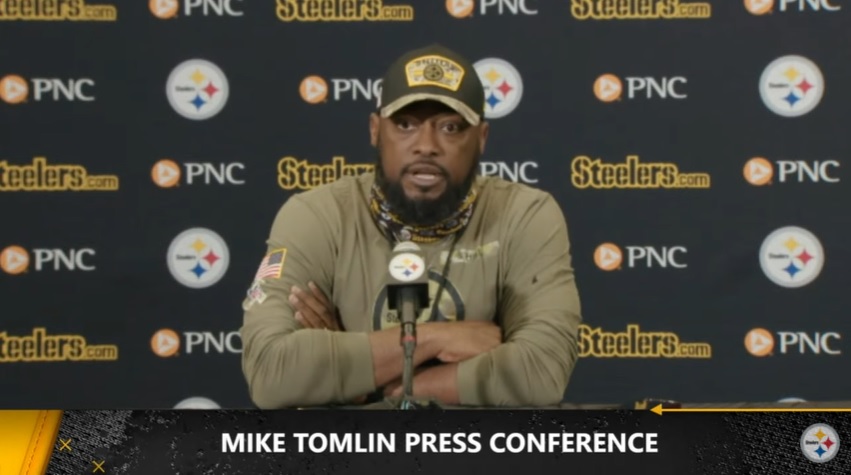It’s never a good thing when you are virtually forced into making a move that you otherwise wouldn’t want to make. The Pittsburgh Steelers have been in a few situations over the years in which they made the decision to alleviate themselves of a player, usually of their own desire, rather than continue to keep him around and allow him to be a potential burden.
The most infamous example is, of course, former Steelers wide receiver Antonio Brown, who donned a blonde mustache and went public with his insanity as he tried to coax the team into trading him. They ultimately relented, getting third-and fifth-round picks out of the Raiders.
Yesterday, of course, they traded Melvin Ingram for a conditional sixth-round pick, which amounts to something less than incredible value. And they not only shipped him off to a conference contender, but to a team they will be facing later this season. Head coach Mike Tomlin explained why they pulled the trigger.
“What the team needs is first and foremost. That’s just how it goes”, he said when asked about consideration of players’ desires. “That’s the component of team sport and football in particular. That’s always the first and foremost. But from a team perspective, also, it’s better to have volunteers as opposed to hostages, so that’s good for the team as well”.
Tomlin first invoked the volunteers, not hostages line when referring to former running back Le’Veon Bell, who was given a franchise tag for a second year in a row in 2018 and decided not to report, sitting out the season.
It was reported, to nobody’s surprise, that the Steelers’ preference was the work out a deal for Ingram with an NFC opponent who would not be a contender and who was not on their schedule. But the Kansas City Chiefs were basically bidding against themselves, so it was either get something for him or let him go and make him available to any team.
“That’s always a component of the discussion, but that’s why you play the market. You see who’s interested and at what level”, Tomlin said when asked about weighing these aforementioned considerations. “At the end of the day, we’ve got to make decisions that are best for us, whether it’s what we’re getting in return for a player weighed against what it is that you mentioned. That’s just standard business”.
A conditional sixth-round pick is certainly better than releasing him, even if it handed him to the Chiefs, who may have gotten him anyway, considering they were the only team calling about him and offering something. The alternative would be to keep him and let him be disgruntled, and that’s a whole other debate.








